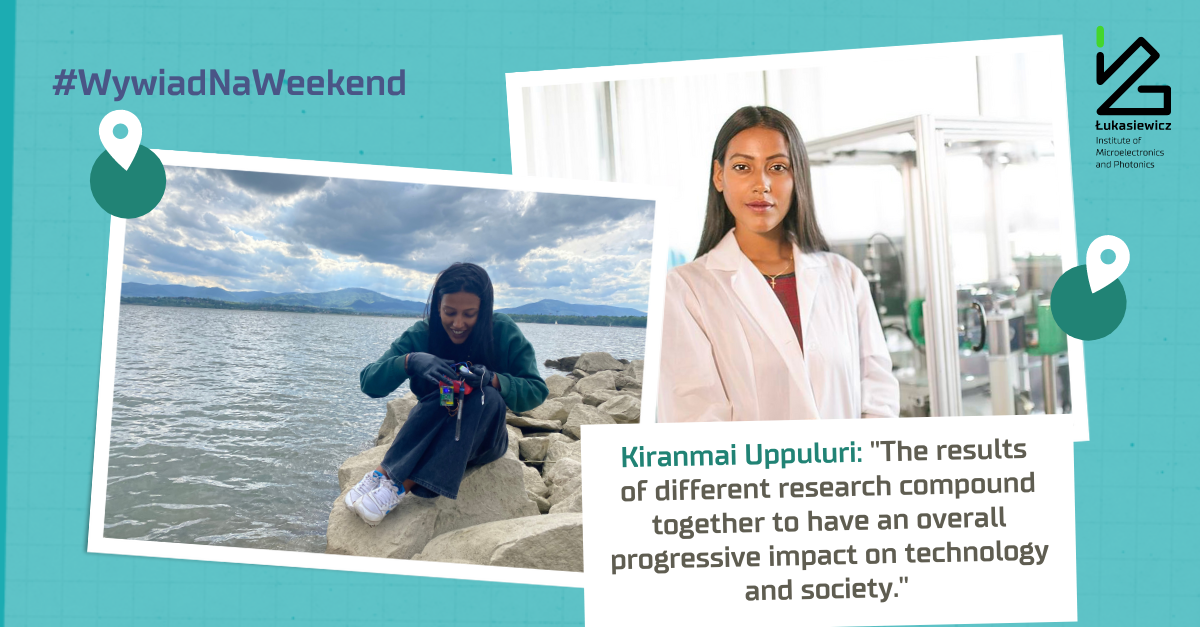Jedna z naszych naukowców – Kiranmai Uppuluri – ma ogromną wiedzę o wodzie, ponieważ ją bada. Pragnie dołożyć swoją cegiełkę do tego, by ludzie na całym świecie mieli dostęp do czystej wody. Dlatego w naszym krakowskim oddziale pracuje nad sensorami wody. Więcej na ten temat w niezwykle ciekawym wywiadzie na naszym profilu na LINKEDIN. (Wywiad jest w języku angielskim).
Nowadays, we can find electronics everywhere, so it’s no wonder that one of our researchers has decided to place a special kind of electronic sensor in water to examine, measure, and detect it. This brave young woman is Kiranmai Uppuluri. She knows a LOT about water and will do her best to have her own, even the smallest, impact on improving the quality of water.
Kiranmai, you examine water, so please tell me – why water?
Angelina, you and I can have this conversation now because there is one molecule that sustains the life in both of us: water. Water is so essential that all living organisms on this planet depend on it. There is a nice quote from one of my heroes – Dr. Sylwia Earle and she said: ‘no blue, no green’, meaning without water nothing can survive. We must respect the significance of this critical resource and that is why water is so crucial, not only for human beings but across all other species of flora and fauna.
When did you start being interested in this subject? As a student? Or maybe even as a kid?
I did my bachelor’s in Physical Science at the University of Delhi and during those years I travelled to the mountains every summer vacation to work with some NGOs. For my first experience, I worked with an NGO called RUCHI (Rural Center for Human Interests) where we would build rainwater harvesting tanks for the villagers ensuring that they have water supply.
In the mountains, the water flows downwards so if there is a village or town which is rather remotely situated from the water stream or river, transporting water to a higher altitude requires infrastructure such as pipes and pumps and it is very challenging to do anything at all of that sort in the mountains. Therefore, it’s important in these kinds of areas to harvest rainwater so that the people can depend on this water supply in case the supply from the lower altitude is disrupted or ideally, to be completely independent of it. Around the world, rainwater harvesting is one of the most encouraged methods of conservation.
Another summer, I worked with an environmental NGO called Waste Warriors. In this NGO, our job was to hike 5 to 6 hours for 9 kilometers to a height of 2800 meters and collect all the garbage that we could find on the way. Unfortunately, sometimes people are not very respectful towards the environment and they throw trash carelessly. In general, every responsible hiker should carry a small bag for trash with them. It can be overwhelmingly disappointing but at the same time very satisfying. It was especially fun when other hikers joined us and helped us to collect the waste. We collected all this garbage on the way to the top. At the end of the day, we segregated the waste into paper, plastics, metal, and non-recyclables.
Working with these NGOs really inspired me to study environmental engineering for my master’s and I decided that this is the cause I want to work for. I realized that the problem is very real and common. It just doesn’t limit itself to India or Asia, it’s a global problem. And therefore I decided to enter this field of science.
Do you know that in 2010 the United Nations established that access to safe drinking water is a human right? Unfortunately, there are still many places in the world where people have limited or no access to water. We cannot sit still and accept this situation. Here in Europe I can turn the water and drink directly from the tap. I never had that when I was growing up because the tap water in India is not so clean and potable.
Kontynnuj czytanie wywiadu na LINKEDIN.


